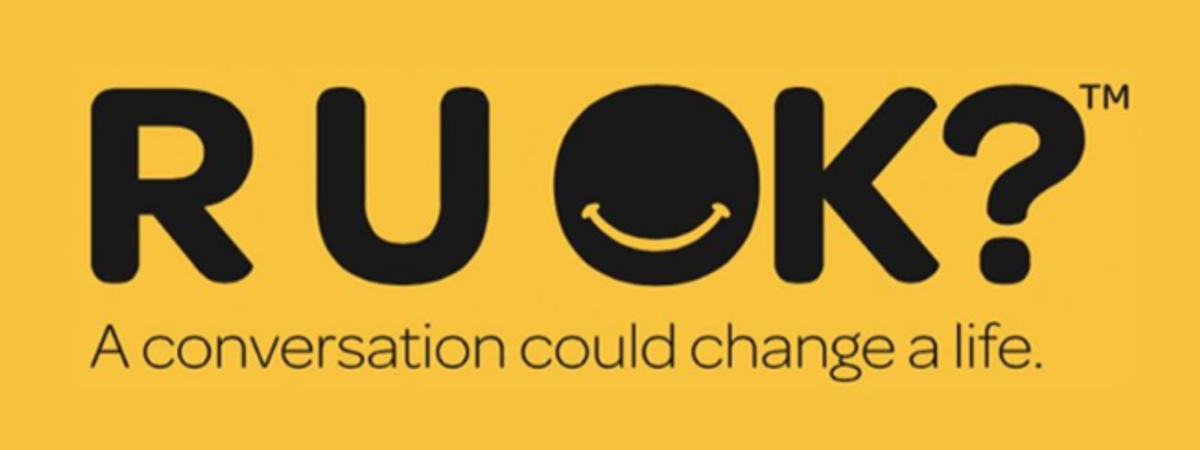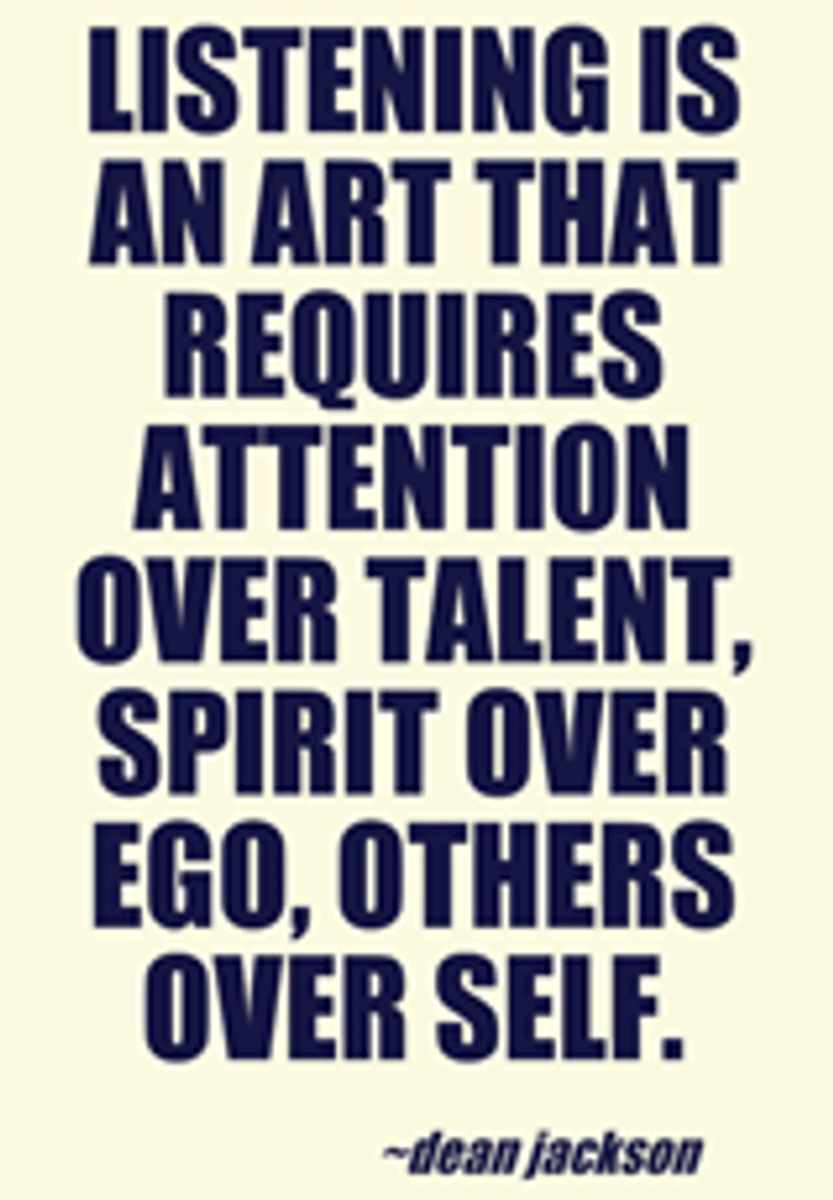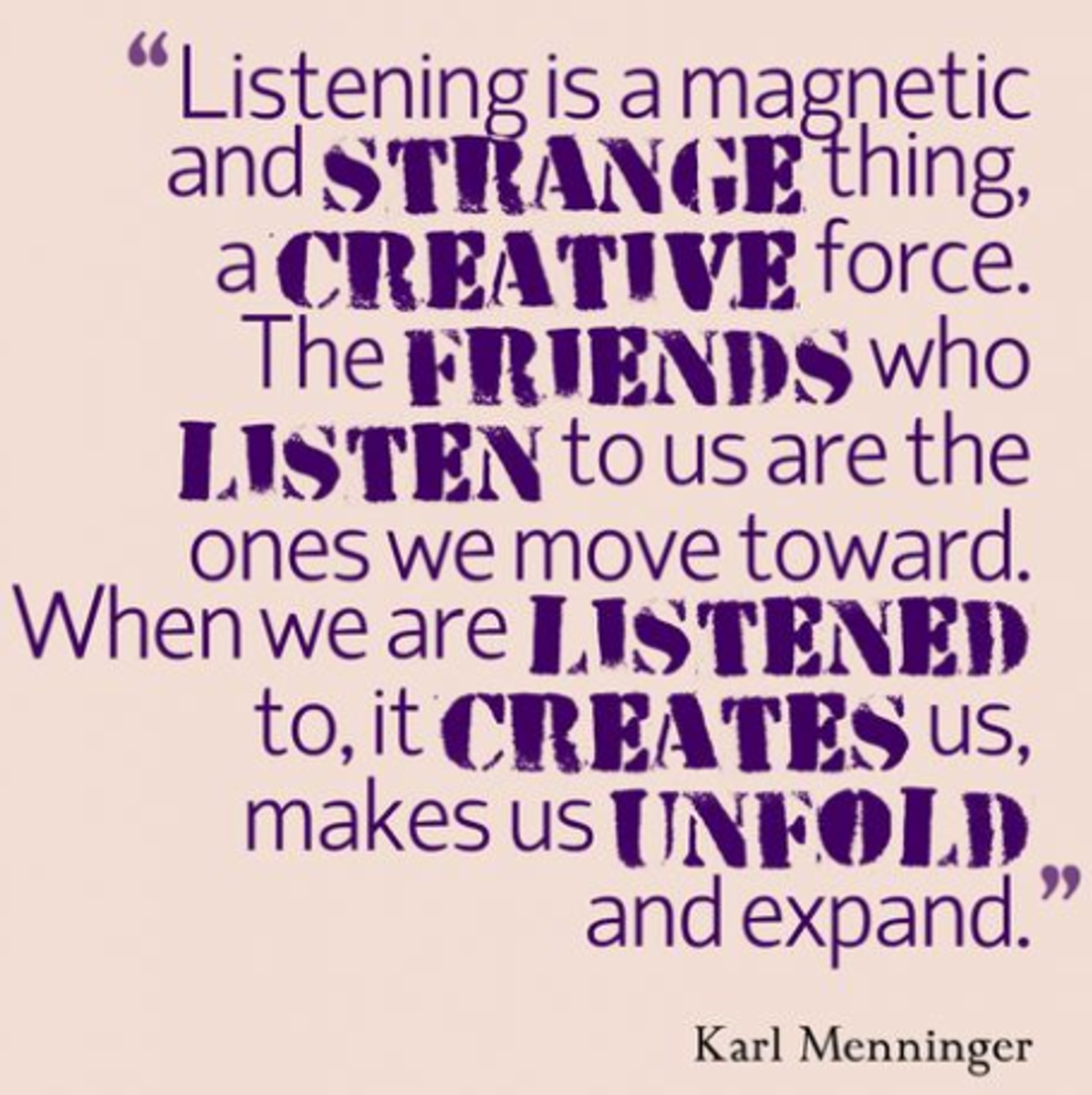Counsellor & Well being News

So with R U OK Day this week I thought I might look at the second and really important step – LISTEN.
Listening is not the same as hearing
There is a big difference between hearing what someone is saying and really listening. Hearing refers to the sounds that enter your ears. Listening however requires more than that: it requires focus, concentration, both mental and physical. Listening means paying attention not only to the story, but how it is told, the use of language and voice and how the other person uses their body. In other words, it means both being aware of verbal and non verbal messages. Effective listening is a skill that underpins all positive human relationships.
Here are some simple strategies to become a better listener:
Listen closely instead of just getting ready to reply
If you are just listening waiting for a break in conversation to say whatever is in your head then you are not really listening. It means that you are not really paying attention and considering what someone is saying, and you are likely to miss vital information and opportunities to learn and grow friendships. Effective listening is key to building good relationships.
You have 2 ears and one mouth. Use them in this ratio.
When a person talks a lot it can lead to negative connotations such as appearing domineering or controlling. Effective conversation involves everyone contributing, listening and considering what is being said in equal ways.
Be open minded - Focus on what is being said, rather than who is saying it
Unfortunately people hold biases and these can influence their views on others. Focus on the content, not the messenger. Listen without judging the other person or mentally criticizing the things they tell you. Listen without jumping to conclusions. Remember that the speaker is using language to represent the thoughts and feelings inside their brain. You don't know what those thoughts and feelings are and the only way you'll find out is by listening.
Be attentive
Mentally screen out distractions, like background activity and noise. Demonstrate the courtesy of putting aside phones, papers, books and other distractions. Shyness, uncertainty, shame, guilt, or other emotions, along with cultural taboos, can inhibit eye contact in some people under some circumstances but be attentive – be present!
Pause for thought
The best listeners always pause for thought before replying. It gives you the chance to think about what you are going to say and express yourself clearly.
Empathy is the heart and soul of good listening. To experience empathy, you have to put yourself in the other person's place and allow yourself to feel what they may be feeling at that moment. This is not an easy thing to do. It takes energy and concentration. But it is a generous and helpful thing to do, and it facilitates communication and building friendships like nothing else does.
Don't interrupt and don't impose your "solutions."
Interrupting sends many negative messages. It says: “I'm more important than you are”, “What I have to say is more interesting, accurate or relevant", "I don't really care what you think", "I don't have time for your opinion", "This isn't a conversation, it's a contest, and I'm going to win."
Be a more thoughtful communicator. When listening to someone talk about a problem, refrain from suggesting solutions. People often just need someone to listen. If you really have to give a solution, wait until they have had a chance to express their feelings and tell their story before seeking permission by asking, "Would you like to hear my ideas?"
Pay attention to what isn’t being said
Non verbal communication such as facial expressions, how a person is sitting, where there are looking gives us a great deal of information about each other without saying a word. You can tell if someone is interested, enthusiastic, bored, annoyed or angry or irritated despite what they are verbally saying to you. I’m sure we have all had someone say “I’m fine” but their tone or their body language shows quite the opposite. These are clues you can't ignore. When listening, remember that words convey only a fraction of the message.
Have a great weekend!
Karen Surian




